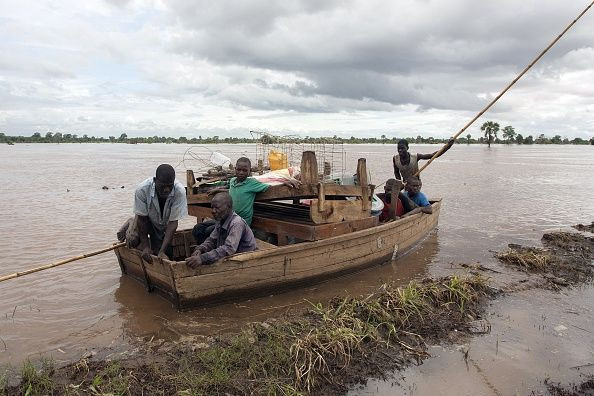Malawi Orders Police To Shoot In A Bid To Protect Albinos

LILONGWE (Thomson Reuters Foundation) - Malawi police are under orders to shoot anyone attacking albinos in the latest bid to crack down on a rising wave of violence against albinos in East Africa whose body parts are prized in black magic.
At least 15 people with albinism, mostly children, have been killed, wounded, abducted or kidnapped in East Africa in the past six months with a marked increase in Malawi, Tanzania and Burundi, according to the United Nations.
U.N officials said at least six attacks on albinos were reported in Malawi in the first 10 weeks of 2015 compared to four incidents over the previous two years and gangs were roaming the southern district of Machinga hunting for victims.
Tanzania has banned witchdoctors to try to stop the trade in body parts used in spells and charms claiming to bring luck, love and wealth, and Burundi is trying to safeguard albinos by accommodating them in housing with police protection.
The latest order came from Malawi's Inspector General of Police Lexen Kachama who instructed police to shoot any "dangerous criminals" caught abducting albinos, according to local media reports.
"Shoot every criminal who is violent when caught red-handed abducting people with albinism," said Kachama, adding that he was ordering police to use weapons in proportion to the crime.
"We cannot just watch while our friends with albinism are being killed like animals every day .. We do realize that these people are ruthless, have no mercy and therefore they need to be treated just like that."
A similar remark was made by Tanzania's Prime Minister Mizengo Pinda in 2009 when he urged citizens to kill anyone on the spot if they were found with the limbs or organs of albinos who lack pigment in their skin, hair and eyes.
Albino rights group have called for greater protection of albinos but said killing suspects was not going to deter criminals offered large sums of money for securing body parts as they were likely to still take the risk for the promised reward.
Witchdoctors will pay as much as $75,000 for a full set of albino body parts, according to a Red Cross report.
Vicky Ntetema, executive director of Under The Same Sun, a Canadian non-profit organization defending albino rights, said campaigners wanted justice for those people kidnapped, mutilated and murdered.
"But we have to remember that all those goons caught red-handed ... are small fish - agents and executors of the big sharks out there," she said.
"Killing them on the spot is not going to help us catch the inducers, those with money to hire these gangs who continue to terrorize innocent people with albinism and their families."
Ntetema urged police in Tanzania, Malawi and Burundi to quiz suspects to get information about the witchdoctors who use albino body parts and their clients.
"We all need to unite and find the culprits who are hiding behind the killers ... Why would people kill albinos if they were not asked to get their organs by someone?" she said.
The plight of people with albinism has worsened in East Africa in recent years, according to U.N. and police figures, with concerns that an election in Tanzania this year will prompt more attacks as politicians seek luck at the ballot box.
The U.N. High Commissioner for Human Rights Said Zeid Ra’ad Al Hussein last month urged African governments to combat impunity for crimes against people with albinism.
Albinism is a congenital disorder which affects about one in 20,000 people worldwide, according to medical authorities. It is more common in sub-Saharan Africa and affects about one Tanzanian in 1,400.
© Copyright IBTimes 2024. All rights reserved.




















